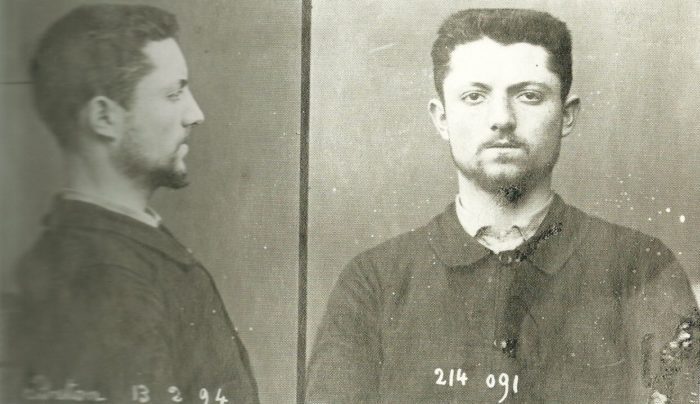The French anarchist Émile Henry was just twenty-one years old when he rocked the streets of Paris for the last time before being captured and finally executed – guillotine style. On a wintry February day in 1894, before leaving his tiny apartment, he accessorized his attire with a revolver, a poison-tipped blade, and a homemade bomb that he slipped comfortably into the pocket of his overcoat.
He wandered around the most upscale streets of Paris, going from cafe to cafe until he settled on waiting for an hour in the Gare Saint-Lazare area for enough people to arrive before setting light to the bomb inside Café Terminus. More than anything, he wanted the place to be bustling with possible victims.

Émile Henry was vehemently against the bourgeoisie class which he claimed was his primary target. He said during his trial that he wanted to kill as many of them as possible. Although in the end, the cafe bombing left only one dead and several wounded. What drove a young, bright man to act out his convictions and desire to destroy society? Henry’s personal life was sewn together from a hodgepodge of details. He was bright and by the age of 16 his education was funded by an academic scholarship; he was eventually accepted to a top-notch French university, but soon lost interest in pursuing that path. He lost most of his jobs – one of the last was lost after his boss found a translated Italian newspaper at his work desk called, “Long live theft, long live dynamite!” The 20-year-old had been reading about how to make nitroglycerin during his work shifts.
Émile Henry joined the anarchist movement as recently in 1891 when he was just 19. He had a passion for it and threw himself headlong into understanding its purpose. Any lack of hesitancy to absorb the radical vocation may hinge on familiarity; he was born to a revolutionist line of ancestors; his father and brother were both members of radical fringe groups. His brother, in particular, was an anarchist enthusiast.
The more Henry learned about the revolutionary cause, the more he embraced its ideology. He concluded that while coming of age, he and those around him had been educated to think the world was one way when in fact, it was another. Henry noted that he and his generation were taught that if one was bright, educated, and worked hard, the outcome was that doors offering a variety of opportunities would open. Likewise, he was taught that equality and justice were, above all, the basis upon which French society was established and should be revered. Yet none of this reflected what he witnessed happening in the world around him. To his horror, the opposite was true. He saw those who were getting ahead in life were the least honest and the least deserving.
It was always the more malevolent characters advancing the most, and with ease. Anyone with a sinister or subservient disposition willing to follow along on the trail of degradation and deceit would be rewarded. Factory owners disproportionately kept massive profits and underpaid their workers, politicians took bribes, police upheld the corrupt system; the injustice riled Henry. He devoted himself to bringing down the system. For a short time, Henry toyed with the socialist movement but found it did not appeal to him. He asserted, as an established order, that socialism was no better than the rotten society he was living in.

